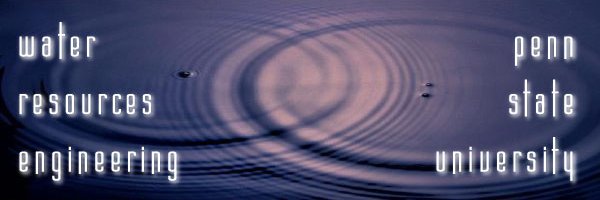

home
people
academics
research
links
| Harleman Lecture -
2004 'The Great Man-Made River in Libya, Does it Make Sense?' Dr. Daniel P. Loucks Professor, Civil & Environmental Engineering Cornell University
|
 |
Speaker Biography
Professor Loucks teaches and carries out research in systems analysis and environmental management for air, land, and water resources. He has served as a consultant to private and government agencies and various organizations of the United Nations, the World Bank, and NATO involved in regional water resources development planning in Asia, Australia, Eastern and Western Europe, the Middle East, Africa, and Latin America.
Professor Loucks was awarded the Huber Research Prize in 1970 and the Julian Hinds Award in 1986 by the American Society of Civil Engineers. He was elected Fellow in the Society in 1983 and Honorary member in 1998. He was elected to the National Academy of Engineering in 1989. He received Distinguished Lecture Awards by the National Research Council of Taiwan in 1990 and 1999, an EDUCOM Award for software development in 1991, the Senior U.S. Scientist Research Award from the German Alexander von Humboldt Foundation in 1992, and the Warren A. Hall Medal from the Universities Council on Water Resources in 2000. Loucks was commissioned in the U.S. Navy in 1955. He served as an aviator on active duty until 1959 and subsequently in the Naval Reserve until 1981. From 1979 to 1981 he commanded VR-52, the largest Naval Air Transport Squadron in the country having detachments at Naval Air Facility, Detroit, MI, Andrews Air Force Base, MD, and Naval Air Station, Willow Grove, PA. In 1981 he was awarded the Navy’s Commendation Medal by the Secretary of the Navy. He retired as Captain from the Naval Reserve in 1992.
Abstract
In the 1950s and 1960s the search for new oilfields in the deserts of southern Libya led to the discovery not only of significant oil reserves, but also of aquifers containing vast quantities of fresh groundwater. Most of this ‘fossil’ water was collected over 35,000 years ago. The demand for fresh water in the mostly desert country of Libya to sustain its economy, especially its agriculture sector, exceeds its traditional supplies. Hence soon after this discovery of fresh groundwater reserves a plan was conceived to pump and transport water from these aquifers in the desert to Libya’s Mediterranean coast where most of its 4 million people live and where the water can be used. This project is called the Great Man-made River. The construction of this ‘river’ of pipes, pumps and reservoirs began in the mid 1980s and continues today. When completed it is expected to cost 25 billion US dollars. In the mid 1990s I had the opportunity to visit Libya and conduct a cost effectiveness and component sequencing analysis of the project for the Great Man-made River Authority. This talk will review and illustrate the incredible engineering challenges being addressed in this project, and the results of our analyses. I’ll also discuss some issues of sustainability relevant to the depletion of non-renewable resources, such as Libya’s groundwater reserves.